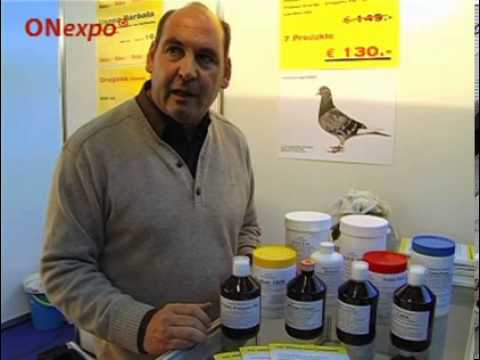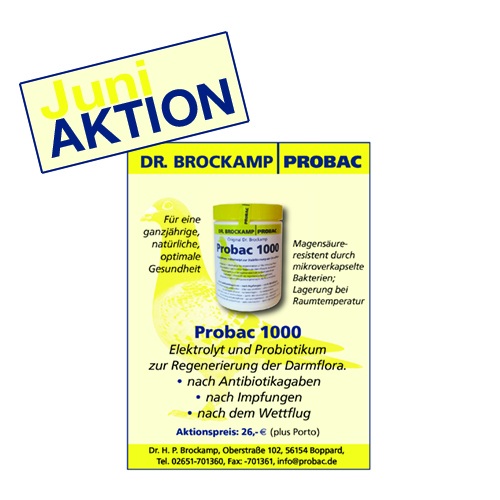Killer germs and antibiotic resistance - from Dr. Hans-Peter Brockamp ...

More and more people for harmful germs spread out, because they have become resistant to antibiotics. With more and more patients in hospitals such bacteria are detected.
Doctors and agricultural ministries indicate a connection with the use of drugs in animal fattening.
Between 15,000 and 40,000 people die each year different estimates, in German hospitals to multi-resistant germs.
As last in Bremen, Kiel, Berlin or Leipzig it always comes back to major outbreaks.
Without rethinking the use of antibiotics, the number of deaths will increase dramatically by multiresistant organisms. This is apparent from an analysis that was given on behalf of the Green-collar tags Group commissioned.
In the study, the authors warn that the death toll could increase from now worldwide about 700,000 per year by 2050 to 10 million.
According to research by the "time", "time-line" and "Correkt! V "wearing farmers and veterinarians especially frequent in-resistant germs and se.
The known multi-resistant pathogens "MRSA *" carries one in four people who have to do with pigs and chickens, in his blood.
Use the exhaust air from stables and from the feces of animals antibiotic-resistant bacteria are transmitted to humans.
By manure bacteria seep into soil and water and thus reach approximately salad and potatoes.
Antibiotics are designed to prevent such closely held and defense weakened poultry ill and dies in the rearing. It all stocks are usually mostly treated.
Through this use of antibiotics in the fattening germs are first in the animals themselves resistant to the drugs. These germs can then be transmitted to humans.
Makers from science and politics therefore see increased the use of antibiotics as a risk and calling for a ban in animal fattening.
Very important drugs for serious diseases to be banned for farmed animals.
However, the risk of becoming infected with the consumption of poultry is still low. Nevertheless, "by the clearly excessive use of antibiotics in industrial animal husbandry a massive risk for humans and animals." Sees the Ladwirtschaftministerin of Rhld.-Pf., Höfgen,
bringing Drug loaded milk or meat into the circulation, is also almost impossible because of the verbundnen controls.
The problem of multi-resistant germs should therefore be sought even in the opinion of J. Thilmann from farmers and winemakers association in the clinics.
There are too many drugs would generally administered and especially antibiotic treatments do not consistently carried out until the end, so that the germs revive and eventually become resistant.
The farmers, however, see no responsibility for the increasing antibiotic resistance of germs. "It is mainly a problem caused by human hygiene problem, says Ingo Steitz from Mainz-Bingen district.
The farmers' and winegrowers association contests the allegation that factory farming is to blame to a large extent that infections with multi-resistant hospital germs have greatly increased in recent years.
They stress that "agriculture the problem very seriously", but pointed out that only 5% of proven hospital multiresistant bacteria come from livestock.
They also point to the Netherlands, where the rate despite intensive agriculture should be even with the most common germ under 1%. There, however, farmers in hospitals to quarantine. Because in our neighboring country prevail radical preventive measures in hospitals.
The recommendation for farmers go however clearly towards the demarcation of the huge farms that in Lower Saxony are mainly located in Germany. Unique example can be found in the Rhineland-Palatinate sewage residues of antibiotics not only human but also in veterinary medicine.
The fact is, according Techniker Krankenkasse that consumption of Antibiotka has increased from 2011 to 2013 nationwide by almost 5%.
Within just one year, 1.8 million days were prescribed doses.
Is also a fact that a relationship between the use of antibiotics in human medicine in animal fattening with the enhanced experience of multi-resistant germs are.
It can only be strongly recommended to dispense with the more than 30% questionable and medically unnecessary prescriptions of antibiotics.
Alternative methods, such as e.g. the use of probiotics to strengthen be promoted!
*MRSA = Methicillin resistente Staphylococcus aureus
Dr. Hans - Peter Brockamp
IPC sports products
Colonel breed 102
56154 Boppard
Tel.: 49 2651 701 360
Fax: 49 2651 701 361
E-Mail: info@probac.de
Advertising:





